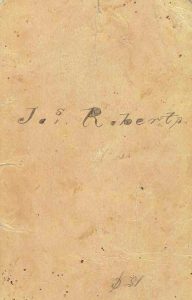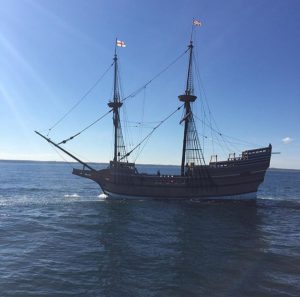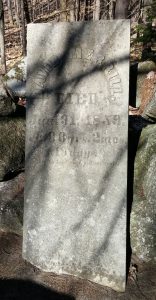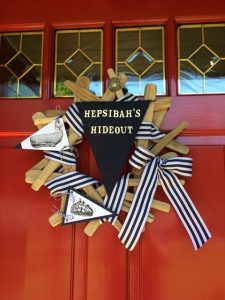 Grandma, Nana, Memaw, Nonna, Babushka: however they’re known, most cultures venerate grandmothers in some way, often through memories of food and its preparation. So it was that while working through a binder of cookie recipes for my annual Christmas Cookie-Baking Binge, I decided to find out what my grandmothers and great-grandmothers baked for Christmas goodies. After all, our ancestors connect to us with food. However, I come from a rather reticent family steeped more in routine than tradition, especially when it comes to holidays. I was starting from a point of nonspecific direction, a condition entirely too familiar. Continue reading Kerosene and other cookies
Grandma, Nana, Memaw, Nonna, Babushka: however they’re known, most cultures venerate grandmothers in some way, often through memories of food and its preparation. So it was that while working through a binder of cookie recipes for my annual Christmas Cookie-Baking Binge, I decided to find out what my grandmothers and great-grandmothers baked for Christmas goodies. After all, our ancestors connect to us with food. However, I come from a rather reticent family steeped more in routine than tradition, especially when it comes to holidays. I was starting from a point of nonspecific direction, a condition entirely too familiar. Continue reading Kerosene and other cookies
Category Archives: American History
Compiling knowledge
 Applicants to the Society of the Descendants of the Colonial Clergy (SDCC) must have “a proven lineal lawful descent from a clergyman who was regularly ordained, installed, or settled over a Christian church within the limits of the thirteen colonies prior to 4 July 1776.” Although not a descendant of a colonial clergy ancestor, I was invited to attend the SDCC business meeting on Saturday, 4 November 2017, because I was a speaker during their annual meeting luncheon. Continue reading Compiling knowledge
Applicants to the Society of the Descendants of the Colonial Clergy (SDCC) must have “a proven lineal lawful descent from a clergyman who was regularly ordained, installed, or settled over a Christian church within the limits of the thirteen colonies prior to 4 July 1776.” Although not a descendant of a colonial clergy ancestor, I was invited to attend the SDCC business meeting on Saturday, 4 November 2017, because I was a speaker during their annual meeting luncheon. Continue reading Compiling knowledge
Ninigret II

A relatively recent treasure added to the NEHGS collections is a late nineteenth-/early twentieth-century oil painting of a Native American sachem. NEHGS purchased this painting in early 2016 from an art dealer. The portrait is traditionally believed to depict Ninigret II (ca. 1610–1677), a sachem of the eastern Niantics, a Narragansett tribe that held extensive lands in what is today Rhode Island.
Ninigret appears to have been a skillful player on the stage of seventeenth-century New England politics. He allied the Niantics with the English against the Pequots in 1637, and kept his tribe out of King Philip’s War in the 1670s. Continue reading Ninigret II
‘Crushed by our great loss’

61 Bowdoin Street, Boston, Monday, 17 April 1865: We have captured Mobile, with 3,000 prisoners & 300 cannon. We have long held its harbor & forts – now this, the last important Southern seaport, is in our hands. A few days ago how gladly we would have greeted this good news – now we are so crushed by our great loss, so stunned by the awful circumstances attending it, that we hardly give any heed to the new tale of success!
President Lincoln’s funeral takes place on Wednes’y April 19th! The anniversary of battle of Lexington – and of the firing on Mass. 6th in 1861, by the mob in Baltimore. Continue reading ‘Crushed by our great loss’
An unsavory connection
 When Chris Child completed the chart of the ancestry of Meghan Markle, which depicts her descent from Edward III and the common ancestry she shares with Prince Harry, I was intrigued by Markle’s early American ancestors. In looking over the chart, one couple in particular caught my eye: John Smith and Mary “Polly” Mudgett.
When Chris Child completed the chart of the ancestry of Meghan Markle, which depicts her descent from Edward III and the common ancestry she shares with Prince Harry, I was intrigued by Markle’s early American ancestors. In looking over the chart, one couple in particular caught my eye: John Smith and Mary “Polly” Mudgett.
As someone who has seen one too many true crime documentaries on Netflix, the surname Mudgett reminded me of Herman Webster Mudgett, more commonly known as H.H. Holmes, one of America’s first serial killers. H.H. Holmes is infamous for his “murder castle,” a hotel built for the 1893 Chicago World Fair where several of Holmes’ crimes are thought to have occurred. Continue reading An unsavory connection
Finding the Amadons

Back in April I attended the biennial conference of the New England Regional Genealogical Consortium (NERGC) in Springfield, Massachusetts. Knowing that I had ancestors who lived in Springfield, I was excited about what I might find at the local repositories. I was not disappointed.
My first order of business was to find the graves of my great-great-great-great-great-grandparents, Titus and Sabra (Gilbert) Amadon. Continue reading Finding the Amadons
Trouble with Speedwell

Over the next few years, you’ll hear more and more about the 400th anniversary of the Puritans and Separatists who sailed on Mayflower in 1620. We know them as “The Pilgrims.” In 1620, the Pilgrims landed at Plymouth in Massachusetts Bay, where they found harsh weather, an unfamiliar land, and where they were responsible for the care of (initially) 102 people in their new Colony.
William Bradford, the Governor of Plymouth Colony, is one of the few individuals who documented his life in the early years of the settlement. Governor Bradford was the longest-serving governor of the colony and is well known for his book, Of Plymouth Plantation, written between 1630 and 1651. Continue reading Trouble with Speedwell
A missing Merrill

Alicia Crane Williams’s post earlier this week – about when an incorrect item was “published in a book” – is quite fresh in my mind as I contemplate a current genealogical problem. Last week I wrote about Gary Boyd Roberts’s research on a distant kinship between Meghan Markle and Prince Harry of Wales. There are several parts of Markle’s American ancestry that a group of us (including Gary and several genealogical colleagues) has been looking into, but the one that keeps coming up regards Meghan Markle’s great-great-great-great-grandfather David Merrill (1768–1859) of Holderness, New Hampshire.[1]
Numerous online trees claim that David Merrill was the son of Jacob Merrill and Elizabeth Wyatt, and this claim is even “published in a book”: The Makers of the Sacred Harp (Champaign, Ill., 2010): Continue reading A missing Merrill
‘Nothing from the Boston Courier’

61 Bowdoin Street, Boston, 16 April 1865: Vice President Johnson[2] was sworn into office yester’y morning in place of our beloved President Lincoln. He is said to be a man of great natural ability but very uneducated. Has been very influential among the loyalists of Tennessee & the West. He was so disgracefully drunk on the 4th of March as to mortify and alarm us all very much. But we hear since that that was an accident – he is habitually a thoroughly temperate man, and was overcome then by what would have affected most men not at all, owing to his being so entirely unaccustomed to the use of stimulants. If he will but keep good advisers about him! And we will hope so. It is said his wife taught him to read and write after their marriage! Continue reading ‘Nothing from the Boston Courier’
A special relationship
 Do you have a special attachment to one ancestor? I do, and she was a source of curiosity and amusement even before I started investigating my family history in earnest.
Do you have a special attachment to one ancestor? I do, and she was a source of curiosity and amusement even before I started investigating my family history in earnest.
During a move ten years ago, I uncovered a (mostly correct) pedigree chart for my father’s side of the family. It sat for a while on my dresser, and in flipping through it with my husband one evening, the name “Hephzibah” caught our eyes. This Hephzibah[1] (also spelled Hepsibah or even Hepsibeth in her later years) was a granddaughter of two other Hephzibahs, each born in Massachusetts by 1700. Continue reading A special relationship